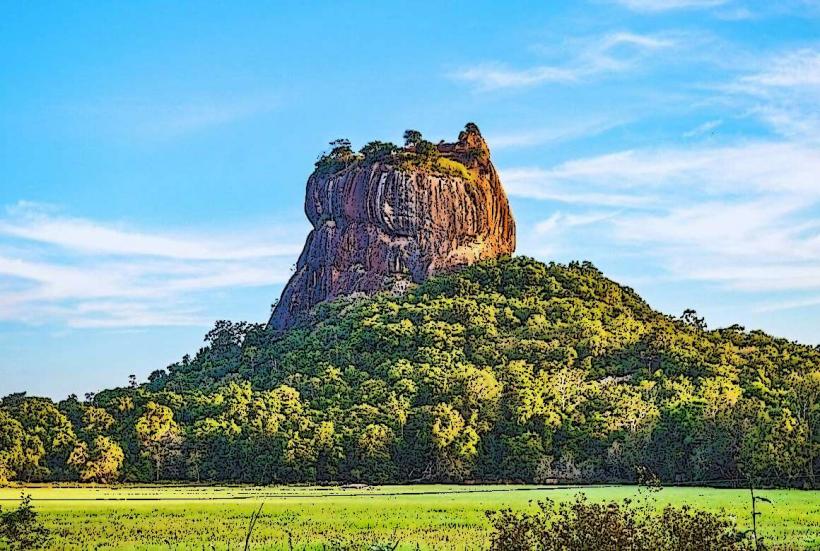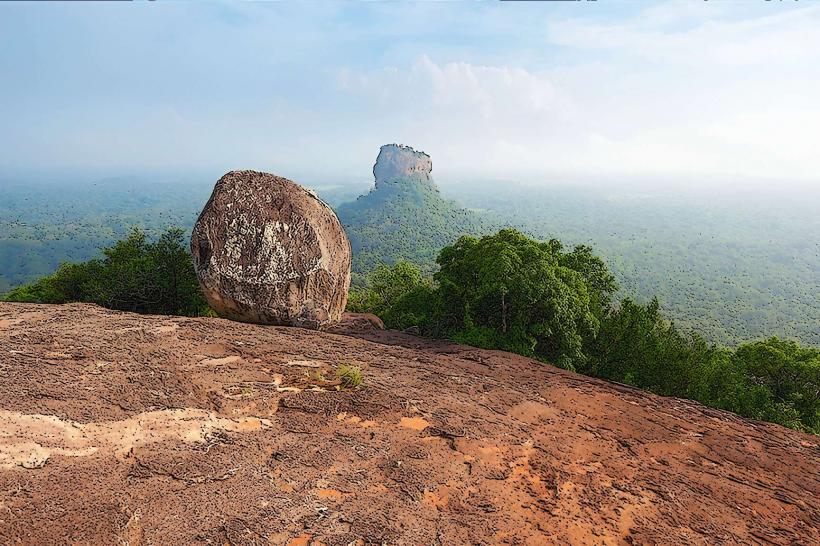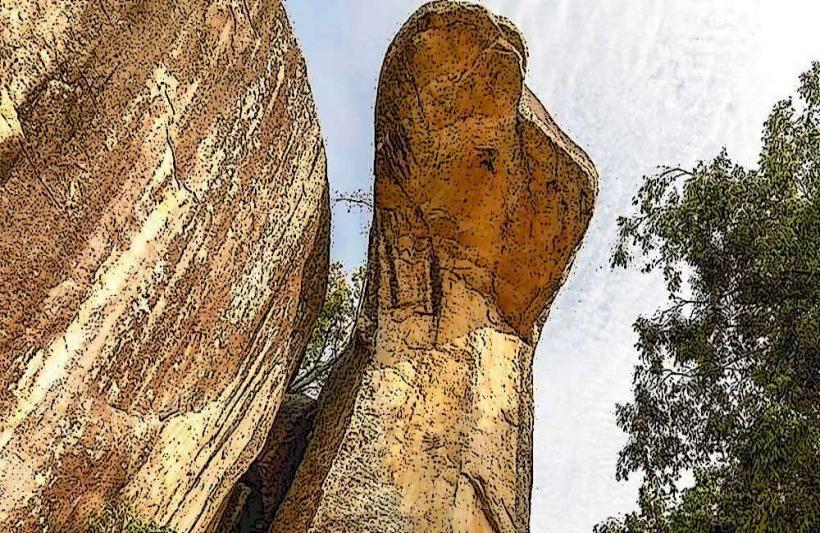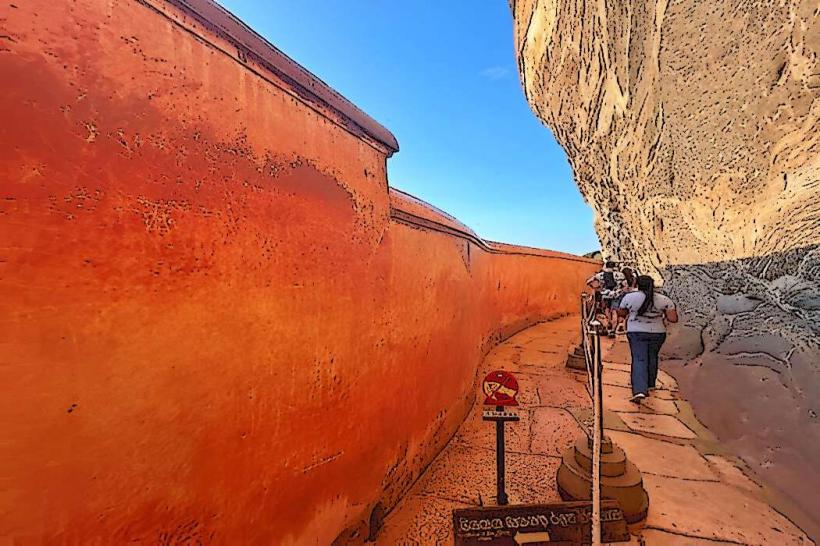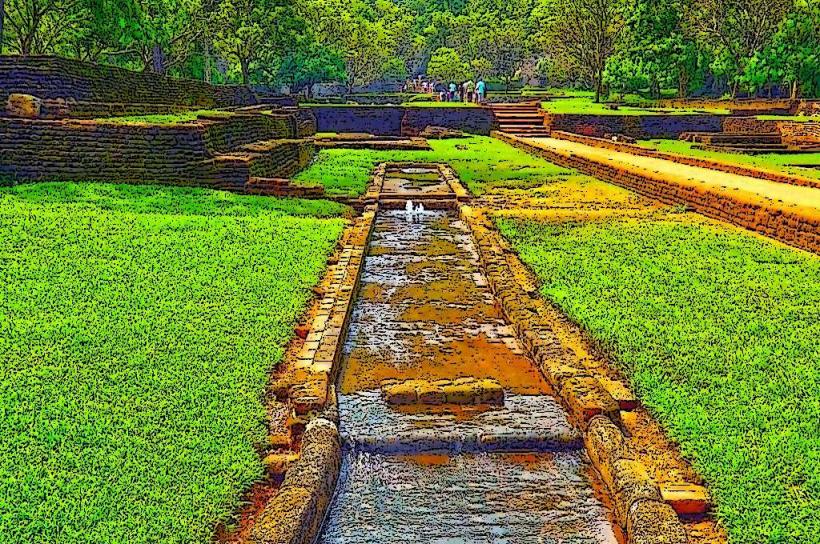Information
Landmark: Sigiriya MuseumCity: Sigiriya
Country: Sri Lanka
Continent: Asia
Sigiriya Museum, Sri Lanka
The Sigiriya Museum is an important cultural and historical institution located near the Sigiriya Rock Fortress in Central Sri Lanka. It serves as a gateway to understanding the history, archaeology, and significance of Sigiriya and its surroundings. The museum was established to complement the experience of visiting the Sigiriya Rock by offering valuable insights into the history, architecture, and artistic heritage of the site.
Overview
- Name: Sigiriya Museum
- Location: Near Sigiriya Rock Fortress, Central Province, Sri Lanka
- Type: Archaeological Museum, Cultural Heritage Site
- Established: 2009
- Key Features: Archaeological exhibits, artifacts, models, and historical displays related to Sigiriya and its history
- UNESCO World Heritage Site: Sigiriya Rock Fortress, which the museum supports, is a UNESCO World Heritage Site
Historical and Cultural Significance
Purpose and Role:
- The Sigiriya Museum was created to provide visitors with a deeper understanding of the Sigiriya Rock Fortress, one of Sri Lanka's most iconic historical sites. The museum aims to preserve and interpret the rich cultural heritage of Sigiriya and the ancient civilization that once flourished there.
- The museum’s exhibits shed light on the history, art, architecture, and archaeology of Sigiriya, with a focus on the reign of King Kashyapa (477–495 CE), the builder of the Sigiriya fortress. It highlights the site’s cultural and spiritual significance as well as its historical context.
The Sigiriya Rock Fortress:
- The museum provides critical background information about Sigiriya, its historical role, and its transformation from a royal residence to a Buddhist monastery after the fall of King Kashyapa. By visiting the museum before exploring the rock fortress, visitors gain a clearer perspective of the architectural marvels, engineering feats, and cultural symbolism that made Sigiriya one of the most impressive ancient sites in Sri Lanka.
Key Features and Exhibits
Archaeological Artifacts:
- The museum houses a collection of artifacts and archaeological finds uncovered from the Sigiriya site. These include:
- Pottery fragments, which provide insight into the daily life of Sigiriya’s inhabitants.
- Tools and weapons, used during the time of King Kashyapa.
- Coins and inscriptions, some of which date back to the 5th century, revealing the economic and social structure of the era.
- Stone carvings and sculptural elements, some of which were part of the Sigiriya Rock’s frescoes and other features.
Models and Reconstructions:
- The museum features detailed models of Sigiriya Rock Fortress and its surroundings, allowing visitors to visualize the site as it might have appeared in its prime. These models highlight the fortress’s unique architectural layout, the water gardens, terraces, moats, and the rock palace that once stood atop the Sigiriya rock.
- Reconstruction displays show how the fortress was constructed, with explanations of the engineering and construction techniques used by the ancient builders. These models help visitors better understand the complexity of the site.
Inscriptions and Graffiti:
- The museum includes inscriptions and graffiti from the Sigiriya rock itself. Many of these are similar to the writings found on the Mirror Wall of Sigiriya, where visitors from ancient times left poetic and personal messages. The museum interprets these inscriptions, offering insights into the literary culture and social norms of the period.
Frescoes and Art:
- One of the key attractions of the museum is its display of frescoes and artistic representations from Sigiriya. The museum showcases images of the celestial women depicted in the Sigiriya frescoes, explaining their significance and role in the visual culture of ancient Sri Lanka. These frescoes are among the best-preserved examples of ancient Sri Lankan art and offer a glimpse into the aesthetic and spiritual values of the time.
Historical Context and Timeline:
- The museum presents a comprehensive historical timeline of Sigiriya, beginning with its origins as a monastic site, its transformation into a royal fortress under King Kashyapa, and its eventual abandonment and conversion into a Buddhist monastery.
- Visitors can learn about the political and religious history of Sigiriya, its connection to Sri Lankan Buddhism, and its significance as a cultural and architectural icon.
Visitor Experience
Educational Experience:
- The Sigiriya Museum provides a deeply educational experience for visitors, offering historical context that enriches the experience of exploring the Sigiriya Rock Fortress. Visitors can explore the exhibits at their own pace and gain a deeper understanding of the site’s cultural heritage.
- The museum features informative plaques and interpretive signs in multiple languages, making it accessible to international visitors. The use of modern display techniques helps visitors connect with the ancient history of the site.
Interactive Displays:
- The museum includes interactive displays that engage visitors with the history and architecture of Sigiriya. Digital presentations and virtual reconstructions provide additional layers of understanding and immerse visitors in the ancient world of Sigiriya.
Guided Tours:
- The museum offers guided tours that provide detailed explanations of the exhibits, helping visitors connect with the history and significance of the artifacts and models. The knowledgeable guides enhance the overall experience, sharing insights into the history of Sigiriya and the mysteries surrounding the fortress.
Conclusion
The Sigiriya Museum is a vital resource for anyone wishing to explore the rich history and cultural heritage of the Sigiriya Rock Fortress. By presenting artifacts, models, inscriptions, and historical narratives, the museum offers an in-depth understanding of Sigiriya’s significance as an architectural and cultural marvel. For visitors, the museum is an essential part of the Sigiriya experience, providing essential context that enhances the exploration of the site itself. Whether you're an enthusiast of ancient history, architecture, or art, the Sigiriya Museum provides a compelling and informative journey through Sri Lanka’s fascinating past.

